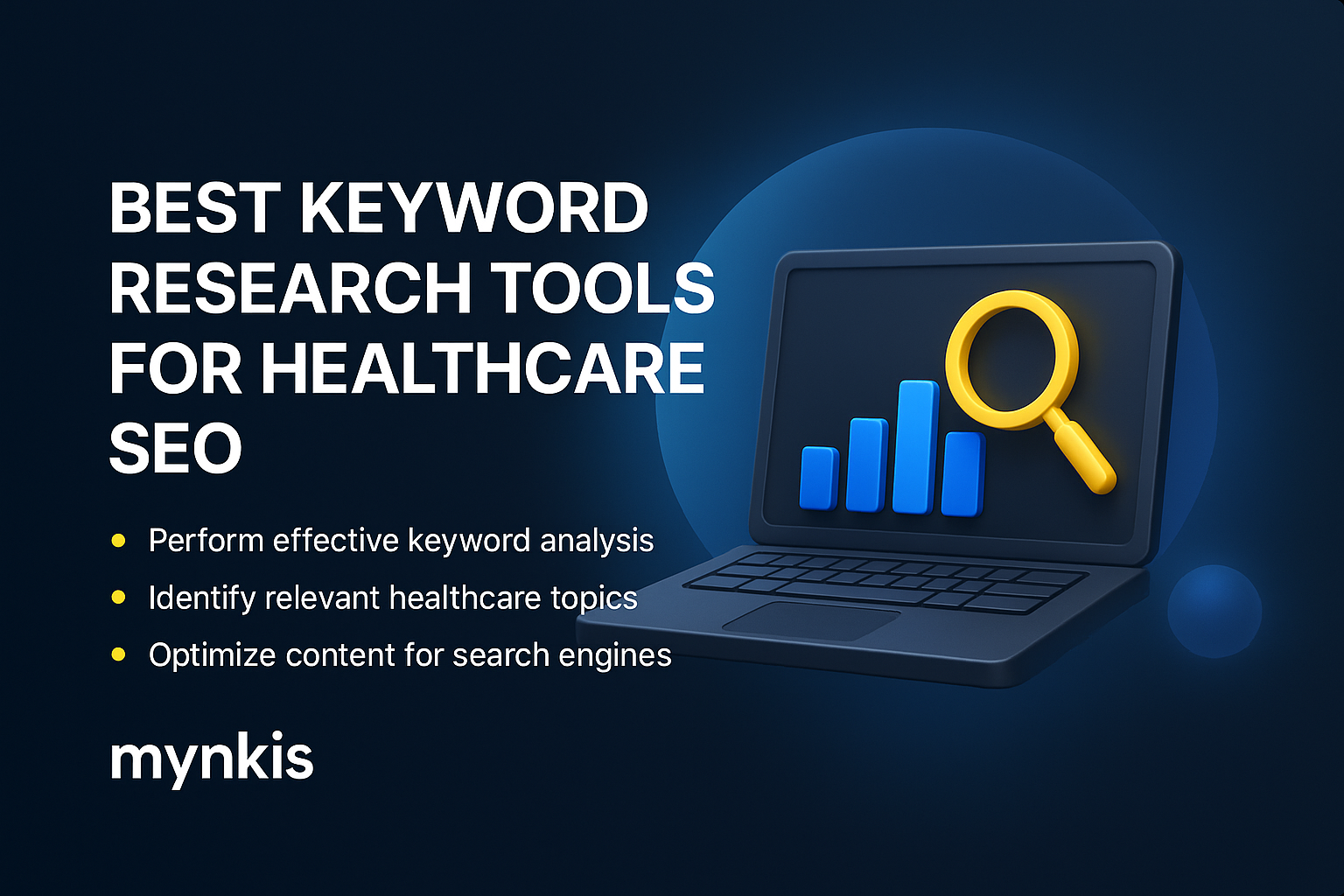Schedule a Demo
When it comes to the digital landscape of healthcare, having a robust SEO strategy is vital. As clinics and hospitals look to enhance their online presence, choosing the right keyword research tools becomes a cornerstone of any successful SEO campaign. These tools are not just about uncovering search terms; they're essential for understanding your audience's needs, building a foundation for content marketing, and improving your site's visibility on search engine results pages.
In my experience working with healthcare operations managers, the intricacies of SEO tend to focus heavily on leveraging relevant keywords. Keyword research is your roadmap to understanding what your patients or clients are actually searching for. Whether it's information about a specific condition or queries about your medical services, these insights can guide everything from your on-page SEO to your entire content strategy. However, without the right tools, it's like navigating the Bay Area traffic at rush hour: possible, but fraught with challenges and delays.
There are numerous keyword research tools out there, each with its own strengths. When selecting the best tool for healthcare websites, consider the following:
Choosing the right tool often comes down to the specifics of your needs. Are you looking to overtake a competitor's position for key health-related terms? Or are you more interested in understanding the broad range of queries potential patients might be entering into search engines?
When dealing with healthcare SEO, it's crucial to navigate the complexities of HIPAA and other regulations concerning patient privacy and data security. I've found that ensuring your keyword research tools do not compromise patient data or run afoul of regulatory standards is non-negotiable. Thus, selecting tools that either anonymize data or conform to regulatory requirements while still delivering valuable insights into search behavior is imperative.
Once you've selected your tool, using it effectively means going beyond simply looking at search volume. Consider the intent behind each search query. For example, keywords that indicate a readiness to book an appointment or learn more about a service should be prioritized. Crafting content around these keywords can help attract patients actively seeking what your clinic or hospital offers.
Don't ignore long-tail keywords, either. These may have lower search volumes, but they often have higher conversion rates and less competition. For instance, targeting "pediatric allergy specialist in San Francisco" will likely bring you more qualified traffic than the generic "allergy specialist."
In the healthcare industry, understanding your digital competitors can be as important as knowing your local ones. Tools like Ahrefs or SEMrush allow you to peek into their SEO strategies by seeing which keywords they're targeting and how they rank. This knowledge isn't about copying their approach but rather learning what works and finding niches they may have missed.
Keyword research is not an island but part of a larger archipelago of SEO strategies. For healthcare websites, it should be integrated with strategies around site architecture, mobile responsiveness, and user experience. The data gleaned from keyword tools should inform your link-building efforts, your content marketing strategy, and even the choice of domain names or URLs.
The digital world evolves rapidly, and so do search patterns and patient expectations. It's essential to regularly revisit your keyword strategies. Use analytics to track which keywords are driving traffic and conversions, and be ready to refine your approach based on what the data shows. SEO isn't a 'set it and forget it' aspect of digital marketing; it requires constant tweaking and adapting.
Looking forward, technologies like AI and machine learning are poised to revolutionize how healthcare providers approach SEO. Predictive analytics may soon inform not only what keywords to target but also help anticipate shifts in patient behavior. Staying ahead of these trends is crucial, and the tools you use today will need to adapt to meet tomorrow's challenges.
Based on available research, individual results may vary depending on specific organizational contexts and continuously evolving search algorithms. Healthcare providers must remain vigilant, ensuring that their SEO efforts conform to ethical standards and deliver genuine value to their online audience. Remember, the purpose of these strategies is not just to increase visibility but to serve those in need better.
